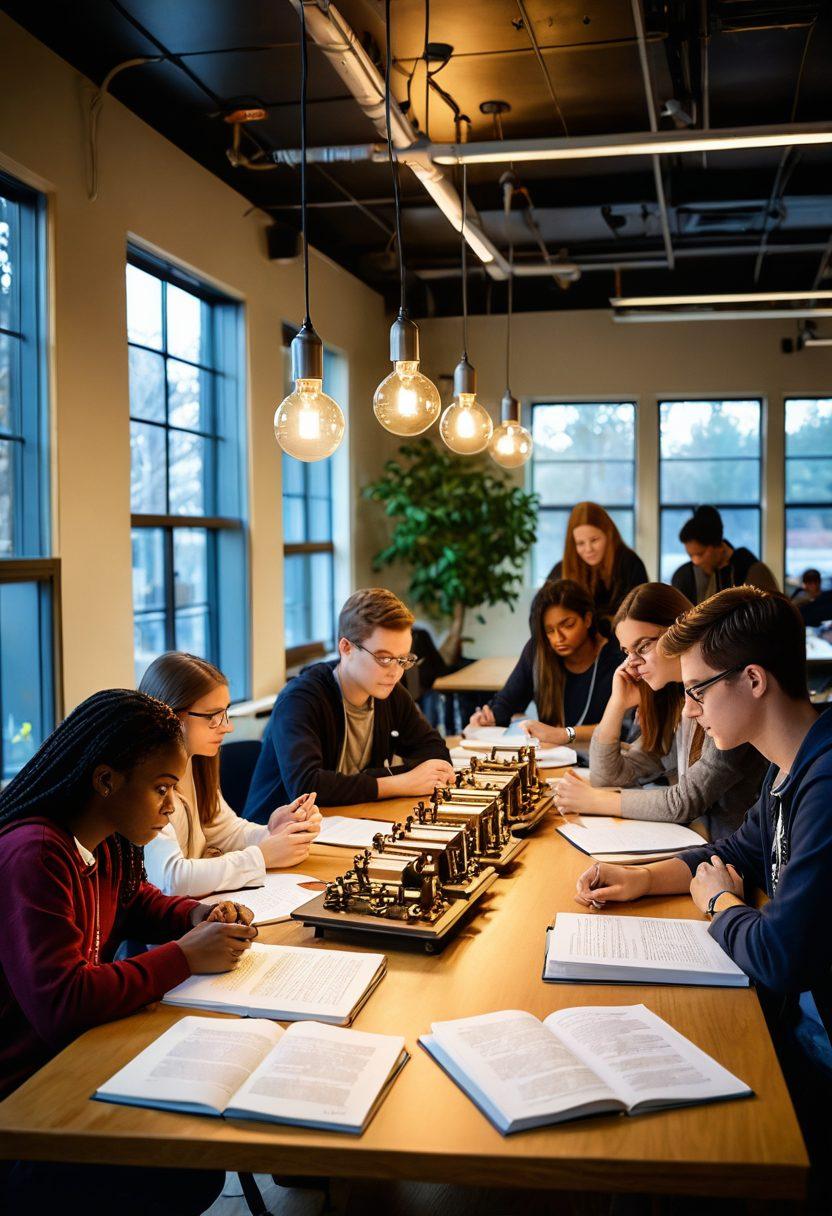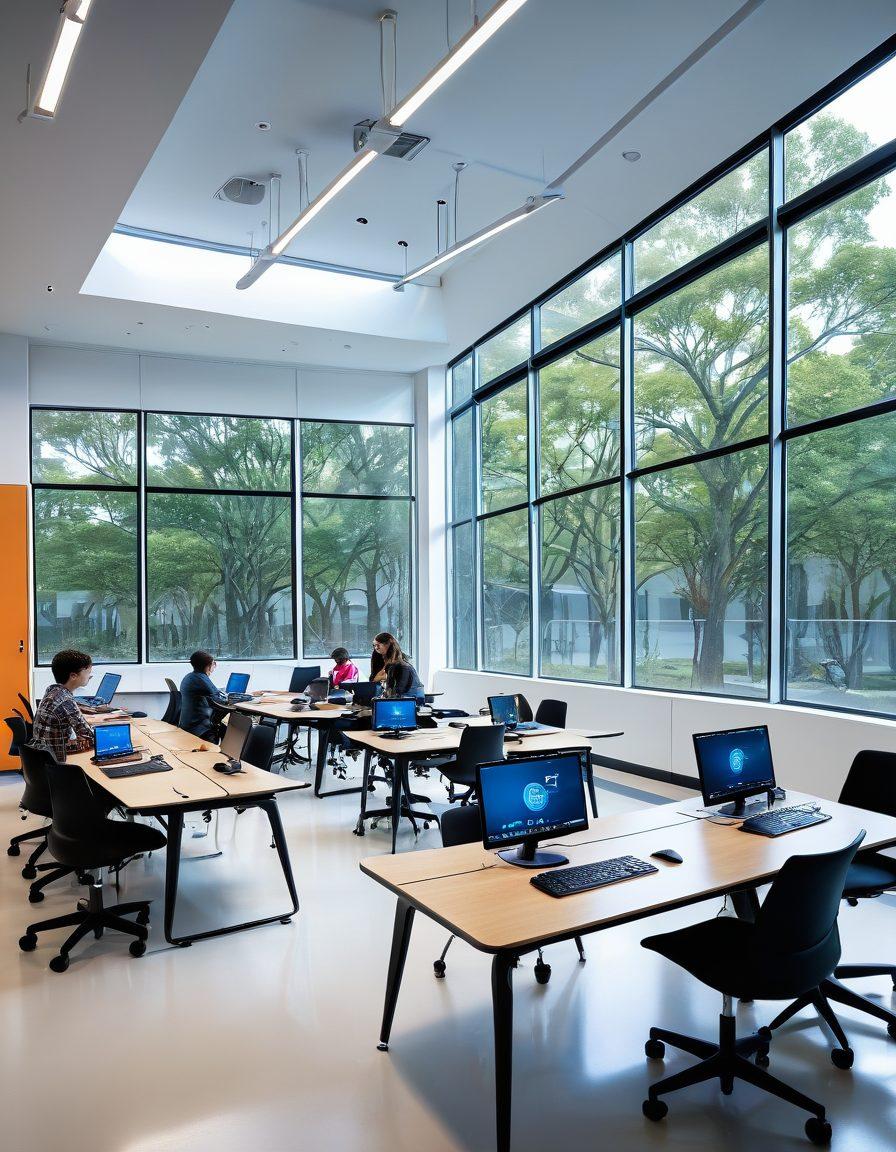Unlocking Success: Transformative Approaches to Learning in Academic Institutions
In today’s rapidly evolving world, educational institutions stand at the forefront of shaping future leaders and thinkers. The traditional methods of teaching are slowly becoming relics of the past, making way for innovative pedagogies that enhance knowledge acquisition for pupils and scholars alike. Have you ever wondered how some academic institutions manage to turn out exceptional graduates ready to tackle the world? It often boils down to the creative and effective ways educators embrace new instruction techniques within their coursework and syllabus.
Imagine a learning environment where every interaction ignites passion and curiosity, where educators act not merely as instructors but as mentors, guiding their pupils on a transformative educational journey. This is not just a daydream; it’s a reality for many forward-thinking schools. By incorporating active learning strategies and fostering a culture of collaboration, these academic programs create a sense of community, making the process of schooling not just about passing exams but about genuine growth and enlightenment. Are we truly maximizing our scholastic potential with current practices?
One of the cornerstones of effective educational practices lies in the blend of theoretical knowledge and practical application, especially in vocational training. The integration of hands-on experiences ensures that students not only grasp academic concepts but can also apply them in real-world situations. Innovative pedagogies could include immersive projects, and service learning that bridge the gap between what pupils learn in the classroom and what’s expected in the labor market. This method not only enhances skill sets but also prepares scholars for the complexities of their future careers, making them more employable and adept at solving societal challenges.
Mentorship stands as a crucial component of this transformative learning approach. Educators who invest time in developing relationships with their students create a safe space for inquiry and exploration. Imagine being a pupil in an academic institution where your educator is your biggest supporter and guide, helping you navigate both coursework and personal growth. This mentorship facilitates personalized learning experiences, making it easier for individuals to engage with the curriculum and maximally utilize learning resources available. Isn’t it time we shift the narrative around schooling from just grades to creating meaningful learning experiences?
Finally, a call to action for educational institutions everywhere: let’s embrace these innovative pedagogies wholeheartedly! By redefining the learning environment with a focus on collaboration, real-world application, and mentorship, institutions can truly empower not just scholars, but future leaders. The goal should be not only to enhance knowledge acquisition but also to foster an environment that promotes continuous professional development and lifelong learning. So, what's your institution doing to ensure that scholars are equipped not just for today, but for tomorrow?
The Future of Learning: Building Dynamic Educational Environments for Success
In a rapidly changing world, the future of learning is being molded by innovative ideas and fresh pedagogical approaches. As academic institutions strive to create dynamic educational environments for success, there's a profound shift occurring in how knowledge is imparted and acquired. Imagine walking into a classroom where every pupil feels valued, every educator is a mentor, and every piece of coursework is designed to ignite curiosity rather than enforce rote memorization. This vision is not just a dream; it is the future of education, where learning environments adapt to the unique needs of every student.
What truly defines a transformative educational institution? Is it the syllabus filled with facts and figures, or is it the life-changing moments that happen within its walls? We need to rethink our conventional understanding of schooling, encapsulating the essence of collaboration, engagement, and real-world application. It’s about creating spaces where scholars can thrive, whether through vocational training or advanced academic programs. Inclusivity should resonate throughout every corner of a classroom, ensuring all learning resources are readily available, empowering every student to succeed amidst diverse backgrounds and abilities.
Every educational institution is filled with potential, but without the right dynamic learning environment, that potential lays dormant. Imagine a place where students engage in curricular activities that reflect their passions and interests—be it through tech clubs, creative writing workshops, or community service initiatives. This environments bridge the gap between theory and practice, allowing knowledge acquisition to feel like an exciting adventure rather than a chore. After all, why should learning be limited to textbooks when real-life experiences can provide some of the most valuable lessons?
What if educators were not just teachers but also community builders? A school where mentors guide pupils not just in their coursework but in their lives? This could be achieved through structured relationships, group projects that foster teamwork, and a culture of open dialogue. As we invest in professional development for educators, we cultivate their capacity to guide students through their academic journey—driving not only scholastic achievement but emotional intelligence and resilience as well. Isn’t it time we considered every educator as not merely an instructor, but as a critical part of student’s formative experiences?
As we look towards the future of learning, let's challenge the norms of how we define an academic institution. Education should be a constant evolution, a living entity that grows, changes, and adapts to the needs of both students and society. By reimagining the learning environment where pupils are engaged, instruction is innovative, and the love for learning is cultivated, we can truly prepare students for success in life. As we embark on this exciting journey of transformation, let's ask ourselves: Are we ready to build the future of education together?
Mentorship and Professional Development: Key Ingredients in Transforming Academic Programs
In the ever-evolving landscape of academic institutions, one undeniable truth remains: the journey of a scholar is not a solitary one. The delicate interplay between mentorship and professional development serves as a cornerstone for transforming academic programs into vibrant learning environments that foster both personal and collective growth. What if we viewed educators not just as instructors but as vital guides shaping the next generation of pupils? As we delve into the essential role these facets play, let's explore how mentorship and professional development can elevate academic programs from conventional schooling to an inspiring journey of knowledge acquisition and transformation.
Imagine walking into a classroom where the energy is palpable, the discussions are rich, and every pupil feels valued. This is not just an idealistic vision but a reality that can be achieved through effective engagement between mentors and scholars. Mentorship transcends the traditional tutor-student relationship; it's about building lasting connections, sharing experiences, and providing tailored guidance that informs a scholar's academic and professional journey. It prompts the question: how can academic institutions cultivate this invaluable dynamic? What systematic approaches can create a culture where mentorship flourishes, and educators are empowered to lead?
As we consider the myriad ways mentorship influences educational outcomes, we cannot overlook its profound impact on professional development. A well-crafted academic program, enriched with relevant coursework and vocational training, can provide scholars with the necessary skills for success in their future careers. However, without mentorship, the practical application of knowledge acquired through the syllabi might stay locked within the confines of textbooks. When educators actively mentor their pupils, they guide them beyond theoretical frameworks, helping them navigate real-world challenges. Isn't it time we infused more mentorship into our pedagogical practices, ensuring that every student learns not only from their studies but also from the wisdom of those who have walked the path before them?
Transitioning from newly acquired knowledge to practical skills can be daunting for many pupils. Herein lies the significance of professional development opportunities within academic institutions. Workshops, seminars, and networking events designed to complement the curricula can empower scholars to cultivate their talents and explore potential career paths. By blending these learning resources with real-world insights from mentors, students can transform their academic experience into a dynamic interplay of scholarship and practical application. Schools that prioritize professional development not only enhance their academic programs but also nurture adaptable, confident graduates ready to tackle life's challenges.
In conclusion, the synergy of mentorship and professional development is a force that can radically transform the landscape of any academic institution. As we strive to create enriching educational experiences, let us champion a culture of mentorship where every educator is a beacon of guidance for their pupils, and every academic program is a pathway to success. As we ponder over the possibilities, consider this: how would our educational environments change if every scholar had a mentor dedicated to their growth? The answer could redefine the future of schooling and pave the way for a generation of learners who not only understand their coursework but have the practical wisdom to utilize it effectively.


